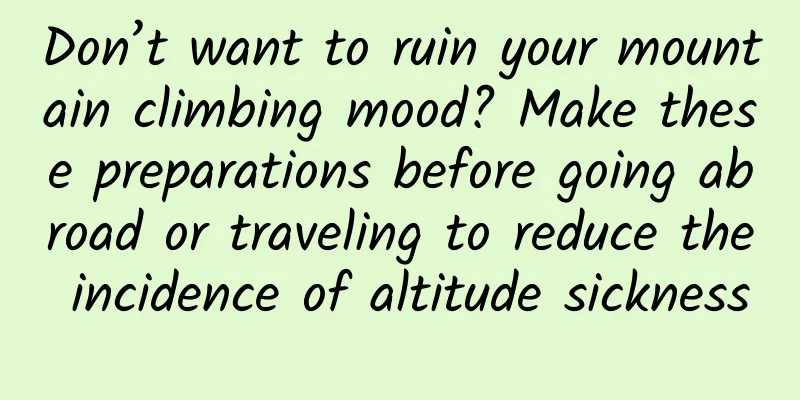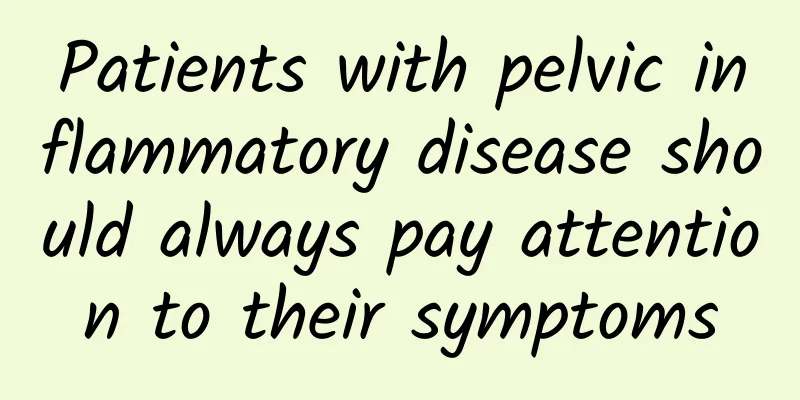Don’t want to ruin your mountain climbing mood? Make these preparations before going abroad or traveling to reduce the incidence of altitude sickness

|
With the development of information and the improvement of transportation, people now like to travel to different countries, not just the common China, Hong Kong, Japan and South Korea. More and more people try to go to less common tourist destinations, such as Central Asia, Central and South America, or African countries...etc. In addition to traveling, many people plan to study abroad, travel abroad, or work and holiday, which also generates many different needs for medicines, physical examinations and vaccines. International travel, like all activities, carries a certain degree of health risk . The extent of the risk is affected by many factors, mainly related to the traveler's personal condition and the content of the travel itinerary. It is recommended that the public consult the tourism medicine clinic in advance. Below I will share with you the preparations before going abroad and introduce some relevant knowledge about altitude sickness. Preparation before going abroad Since the epidemic situation in each country is different and constantly changing, it is recommended that people who plan to travel abroad can first check the Internet and go to the website of our "Centers for Disease Control" (www.cdc.gov.tw) to obtain travel medicine information . On the "International Travel and Health" page of the website, click on the country you plan to visit on the world map to print the "International Travel Prescription" . This is not a real drug prescription, but a list of travel precautions, which includes the country's epidemic situation, health protection measures, preventive vaccination recommendations, emergency relief channels, etc. It is very complete and detailed. Secondly, the Centers for Disease Control website also lists in detail the hospitals in each county and city that provide "travel medicine outpatient" services. When seeking medical treatment, you should first be aware of your travel destinations (including: each country of entry and exit, stopover area, whether traveling to the suburbs), travel type (self-guided, business, pilgrimage, or medical-related), and travel activities (such as contact with animals, high altitude areas). In addition, you should also prepare your past vaccination records, especially for students studying abroad, because they stay for a long time and have accommodation needs, and the vaccination requirements are often strict. The doctor will discuss the need for vaccinations and provide any necessary preventive medications. It is important to note that you should try to visit the travel medical clinic one to two months before traveling abroad, because many vaccines take some time to take effect and some tests take time to test. Introduction to Altitude Sickness Altitude sickness is an acute or chronic pathological symptom produced by the human body at high altitudes. As the altitude increases, the atmospheric pressure gradually decreases and the amount of oxygen inhaled also decreases. When the rate of ascent exceeds the body's ability to adapt, altitude sickness will occur. Not everyone will experience symptoms of altitude sickness when they go to the mountains. People with the following risk factors are more likely to have symptoms: rapid ascent, absolute altitude reached, altitude of sleep, strenuous exercise, cold and hypothermia, use of central nervous system depressants (including drinking and sleeping pills), history of altitude sickness, long-term residence in low-altitude areas, and chronic cardiopulmonary diseases. There are different classifications of altitude sickness according to different symptoms. ● Acute Mountain Sickness (AMS) After ascending to a higher altitude, you may experience headache and at least one of the following symptoms: gastrointestinal discomfort (loss of appetite, nausea, vomiting), fatigue, dizziness, and difficulty sleeping. ● High Altitude Cerebral Edema (HACE) Symptoms of AMS with an unsteady gait or altered consciousness; or an unsteady gait and altered consciousness regardless of the presence or absence of symptoms of AMS. ● High Altitude Pulmonary Edema (HAPE) When climbing to a certain altitude, the following phenomena occur: ★ There are at least two symptoms: breathing discomfort or coughing when at rest, weakness or decreased ability to move, or a feeling of chest tightness or fullness. ★ There are at least two symptoms: rales or wheezing in at least one lung field, or central cyanosis (purple), or tachypnea, or tachycardia. Altitude sickness prevention and treatment ● Drug prevention For those with a history of altitude sickness or who do not use a gradual ascent, consider using Diamox acetazolamide (125-250 mg twice a day, starting 48 hours before the ascent and continuing for at least 48 hours after reaching the destination altitude. How to deal with: ● For mild altitude sickness , there is usually no need to descend the mountain immediately; the symptoms can be improved after adapting to the same altitude. ● If moderate symptoms remain severe and do not improve after 24 hours of adaptation or treatment, you should leave the mountain immediately. Although the more you descend in altitude the better, generally descending 500-1000 meters is enough to significantly improve symptoms. For patients with mild altitude sickness, symptoms usually improve significantly by descending 70 to 140 meters. ● If you have serious symptoms , such as high-altitude cerebral edema (unsteady gait, unconsciousness) or high-altitude pulmonary edema (coughing with foamy and bloody sputum or rales on lung auscultation), you should go down the mountain immediately. Drug treatment: Currently, drugs that have been proven to be effective in treating and preventing altitude sickness include: damus, steroids, and calcium channel blockers. ● Diamox: Its mechanism of action is that it has a diuretic effect that promotes the elimination of carbonic acid, causing mild metabolic acidosis, and stimulating breathing to increase ventilation, thereby increasing arterial blood oxygen and producing its effect. At the same time, it also reduces the production of cerebrospinal fluid and its total amount. It has been proven to be effective in the treatment and prevention of altitude sickness. The dosage is 250 mg three times a day. ● Steroids (Dexamethasone): The mechanism of action is still unclear, but it is believed that it may improve the integrity of the microvascular cell membrane and cause cerebral vasoconstriction. It is effective in treating high-altitude cerebral edema and moderate or severe mountain sickness. The dosage is 8 mg orally, intramuscularly or intravenously, followed by 4 mg every six hours. ● Calcium channel blockers (Nifedipine): can effectively reduce pulmonary vascular resistance and pulmonary artery pressure, and have been proven to be effective in treating high-altitude pulmonary edema. The adult dose of Nifedipine is 10-20 mg, given every eight hours, or 30 mg of the long-acting preparation Nifedipine every 12-24 hours. |
>>: A must-eat for weight loss! Choose the right 5 superfoods to help you repair your body
Recommend
There are several symptoms of vulvar itching
For the symptoms of vulvar itching, we must analy...
Do many girls have abnormal leucorrhea?
Abnormal vaginal discharge is a common health pro...
What are the most important things to pay attention to after abortion?
Speaking of abortion, I believe everyone should k...
What are the common complications of irregular menstruation?
Irregular menstruation is a common disease among ...
Don’t eat right away on an empty stomach! Exercise first to lose weight faster
When I feel "hungry", I always have a s...
Push-ups also have a female version with a coach's amazing demonstration
Who says girls don’t have the strength to do push...
Why does the cervix hurt when touched? There are many reasons
The cervix is the entrance to the uterus. Many ...
When will my period come after an abortion? It's been a month since I had an abortion, why haven't I had my period yet?
When will my period come after an abortion? Why h...
How long will my period be delayed if I take birth control pills?
Some contraceptives do not cause delayed menstrua...
What are the effective ways to take care of ectopic pregnancy?
The occurrence of ectopic pregnancy is very commo...
What is the reason for irregular menstruation in a 16-year-old girl
There are many reasons for irregular menstruation...
Increase satiety and help lose weight! Eat 7 oatmeal weight loss recipes
Every 100 grams of oatmeal contains 9 grams of di...
I have abdominal pain in late pregnancy, like dysmenorrhea, but my water has not broken and I have not seen any blood.
Abdominal pain in the late pregnancy is similar t...
How much does it cost to treat chronic vaginitis? What should I eat less if I have chronic vaginitis?
Due to various adverse factors, female friends ha...
Will an ectopic pregnancy show parallel bars?
Ectopic pregnancy is a serious pregnancy complica...









